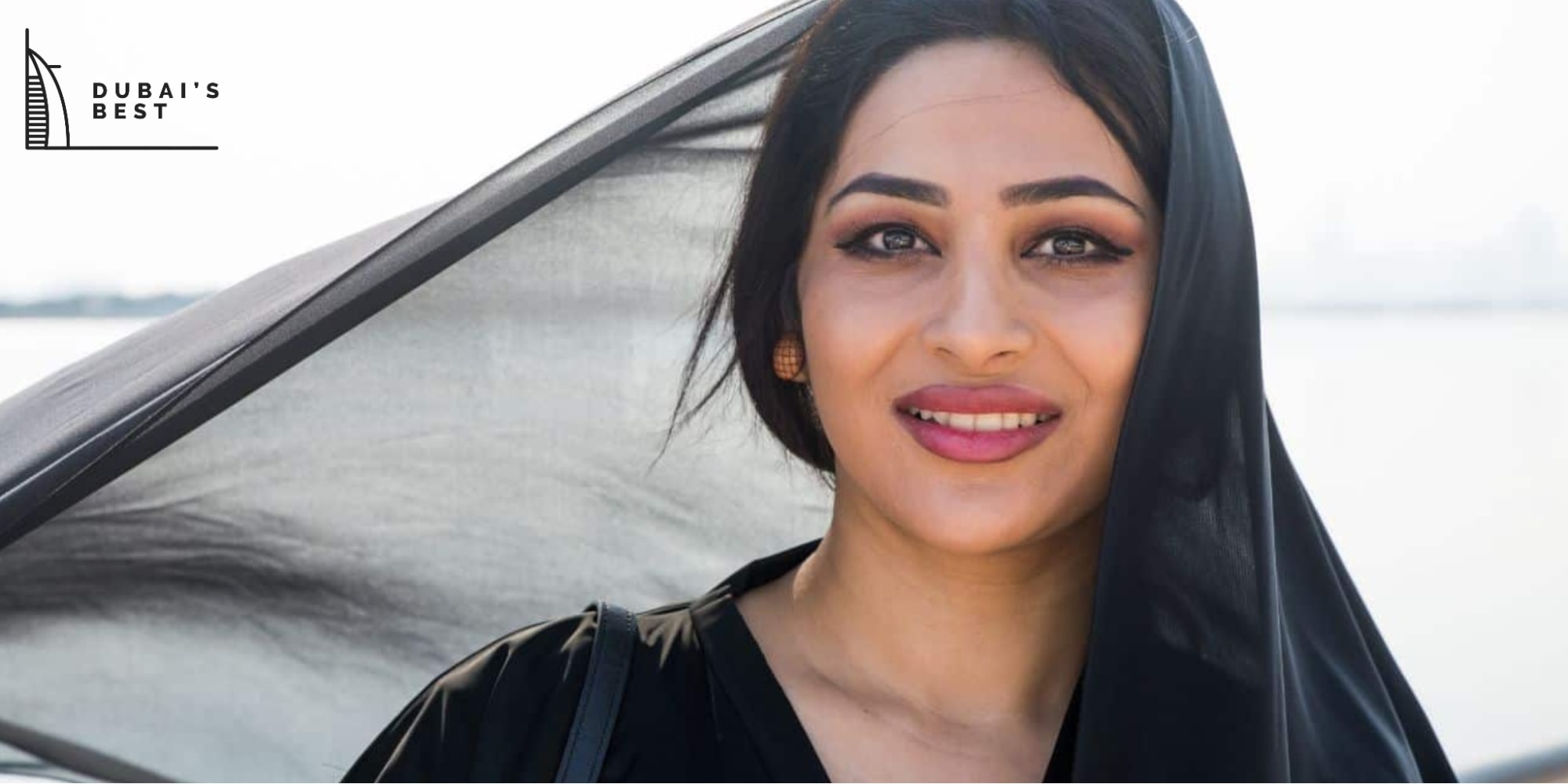Understanding the Rights of Women in Dubai
Have you ever wondered what it feels like to be a woman living in Dubai?
Dubai puts a lot of value in its culture and traditions and we can’t deny that women used to face problems with equality.
But today, the city is all about championing the rights of women to make sure that its female residents feel safe and secure while living in the city. In fact, it’s become one of the safest cities for women to live anywhere in the world.
What Are Women’s Rights in Dubai?
Dubai gives equal rights to women in terms of work, suffrage, security, justice and inclusion among other things.
Let’s look at these in more detail below.
The Right to Suffrage and Power

Being a non-democratic country, Emiratis don’t get to choose their heads of state.
But since 2006, the government has started allowing its citizens to vote or stand in the Federal National Council (FNC) where half of the seats are elected by voters.
Today, women make up nearly half of the voting population in the country. Women in Dubai are also given the right to be elected into government office.
In fact, in the 2019 elections, the President announced that half of all FNC members must be women.
Women in Power
Her Excellency Shamma Al Mazrui, the Minister of State for Community Development, is one of the nine women who serve in the country’s cabinet. At the age of 22 when she was elected, Al Mazrui became the youngest minister in the world.
Her Excellency Ambassador Lana Nusseibeh became the country’s first female permanent representative to the United Nations and its fifth female ambassador.
Dr. Amal Al Qubaisi was appointed as the President of the FNC in 2015, making her the first female in the Middle East to lead a national assembly. She was also the first female deputy speaker and the first female to be elected into the organization.
Women also hold two thirds of the jobs in the country’s public sector with 31% in management roles and 15% in academic and technical roles.
According to the 2023 Gender Gap Report by the World Economic Forum, the UAE is ranked 35th in the world in promoting political empowerment among women.
The Right to Education and Literacy

The Dubai and UAE government believes that education is fundamental to promoting women empowerment. This is why the country has a 95% literacy rate for both genders.
This is why all women in Dubai have the fundamental right to enjoy all levels of education – from primary to secondary school – so they can build a good life for their future.
Because of this initiative, more women now finish secondary education than men and 77% pursue higher education, with 70% of university graduates being female.
In Dubai, several educational institutions cater exclusively to female students.
These include the Dubai Women’s Campus – Higher Colleges of Technology, Dubai Women’s College HIgh School and the American Academy for Girls.
A lot of women are now also playing an integral role in helping the country achieve its goals in elevating its capabilities in the areas of science and technology.
Because of their rights to getting the best education, more Emirati women are now exploring the world of STEM, especially with the accessibility of related education programs in Dubai.
Women in Science and Technology
Her Excellency Sarah Al Amiri is the Minister of State for Public Education and Advanced Technology and Chairwoman of the UAE Space Agency. She shared that 50% of their employees in the space program are women, which is a huge feat considering that women don’t get equal treatment in the same field in other countries.
Fatima Al Kaabi is the youngest Emirati inventor at only 15 years old. She was also given the UAE Pioneer Award and is now studying engineering.
The Right to Full Independence

There was a time when women had very limited freedom. In fact, it’s no secret to the world how many married women in Arab countries have to take their husband’s lead and be submissive.
But with the country’s efforts to make the UAE more adapted to the modern world, women now have more rights towards living a fully independent life.
So, can a woman live alone in Dubai? Absolutely. In fact, Dubai is one of the safest cities to live alone for females with 98% of women feeling safe living and working in the city.
This is because Arab countries have always put a high value on women that strict rules are in place to make sure that no one feels threatened, insecure or abused in any way.
So, what does it feel like to be living alone in Dubai as a woman? It’s just like living anywhere else in the world except that you’ll feel a lot safer walking even at night.
It’s also not uncommon to find establishments with special ladies only areas including fitness centers, clubs and even sports venues where women can do what they want safely.
Women also have the right to buy their own home, drive their own car and do things that men can do.
The Right to Employment and Business

Women in Dubai have the right to get employed in any industry or company that they desire where they should receive equal pay for equal work.
They have the freedom to choose their job, whether it’s in the private or public sector, and they also have the right to be promoted to higher positions if they meet the criteria.
Some of the top jobs for women in Dubai include:
| Dietitian – AED 43,100 per month | Skincare Specialist – AED 32,100 per month |
| Child Development Specialist – AED 30,000 per month | Patient Relations Manager – AED 25,200 per month |
| Youth Care Counselor – AED 25,100 per month | Curriculum Developer – AED 21,400 per month |
| Yoga Instructor – AED 18,500 per month | Interior Designer – AED 17,900 per month |
| Special Education Teacher – AED 17,100 per month | Nurse – AED 15,900 per month |
Women also have the right to start their own business.
In fact, there has been a growing population of female entrepreneurs in Dubai, especially with support from groups like Womena that help to promote the rights of women entrepreneurs in the country.
As a country, the UAE topped the number of women on the 2023 Forbes 100 Most Powerful Arab Businesswomen with 15 Emiratis making it on the list.
More than 25,000 Emirati women also run businesses that are worth over AED 60 billion.
The Right to Marriage

Marriage can be a tricky subject, especially when it comes to the rights of women.
According to the law, 18 is the legal age for a woman to get married. However, the Quran states that puberty should be the age of consent for marriage.
To satisfy the needs of both the state and the Islamic faith, women in Dubai are allowed to get married at the age of 18 only if they have the approval of a judge.
Applying for marriage is also a long process, although Dubai already introduced a civil marriage application where couples can get a license within 24 hours.
To apply for this civil marriage application:
- The couple should be non-Muslims and at least one should be a resident of Dubai
- The couple should be at least 21 years old and proof of being single must be provided
On the other hand, Muslim couples need to complete these pre-marital general requirements to get married in Dubai:
- The approval of marriage from the bride
- At least one of the couple should be a UAE residence visa holder
- A positive pre-marital screening certificate from one of the public healthcare facilities in the country
In the past, couples needed to get married before they could have a baby. Getting pregnant outside of marriage was even considered a crime with serious punishment.
This has changed, however, with new rules stating that a woman will not be held liable criminally if she gets pregnant while unmarried as long as the child will be fully acknowledged by the parents.
Either of the parents should also be a resident of the UAE to be eligible to apply for the birth certificate of the child.
The Rights to Finances

Women in Dubai have the right to purchase their own property and get a mortgage.
This is why there has been a huge appetite among Emirati women to buy properties with 30% of the city’s properties being owned by women.
Women are also given the freedom to build and protect their own finances. In fact, they are required to create a will to make sure that their wealth will be divided equally among family members.
This is because Islamic law states that without a will, inheritance should depend on the gender of the heir with a higher percentage given to the male over the female heirs.
The Right to Maternity and Healthcare

Access to the best quality healthcare and maternity services is a basic right for women in Dubai.
There are many clinics and hospitals around the city where women can enjoy almost every type of treatment and care needed for whatever health conditions they suffer.
This is why Emirati women are now living longer, healthier lives. Giving birth is also an important part of the rights of women in Dubai.
Abortion is illegal in the UAE except for circumstances where the pregnancy needs to be terminated due to complications or if the mother’s life is at risk.
If a woman gets pregnant, she has the right to continue working unless the conditions are unsafe for her and the baby. According to the UAE’s labor laws, no employer has the right to terminate a female employee just because she’s pregnant.
When giving birth, the law states that women should be given enough time to recover and spend time with their baby, which is why they are given the right to a maternity leave.
Employees of Dubai’s public sector are given 90 days or three months maternity leave with full pay regardless if they had a normal or cesarean birth.
Private companies, on the other hand, are only required to give 45 days of maternity leave to their employees. Those who work in the general society division are given 60 days of maternity leave.
However, a company may choose to extend the number of days given to an employee to give her time to recuperate, especially after a C-section, and fully enjoy motherhood.
If the mother needs more time to recover, if the pregnancy has complications or if the child requires more care, she is entitled to apply for another 100 successive days of unpaid leave.
Once a mother gets back to work, she will be given an extra hour off or up to two hours a day to breastfeed her child.
She is given this privilege until the baby turn’s one and she has the option to start work early or finish early to use up this leave.

